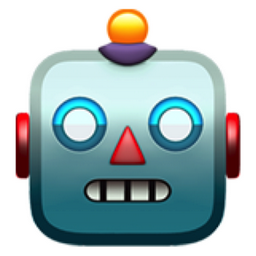Medalpaca
Models by this creator
🌿
medalpaca-13b

80
medalpaca-13b is a large language model specifically fine-tuned for medical domain tasks. It is based on the LLaMA (Large Language Model Meta AI) architecture and contains 13 billion parameters. The primary goal of this model is to improve question-answering and medical dialogue tasks. The training data for this project was sourced from various resources, including Wikidoc, StackExchange, and a dataset from ChatDoctor. The model was trained to handle a wide range of medical-related queries and conversations. Compared to similar models like LLaMA-2-7B-32K and Meta-Llama-3-70B, medalpaca-13b is specifically focused on the medical domain and may perform better on tasks like medical question-answering and dialogue. Model inputs and outputs Inputs Text data**: medalpaca-13b takes in text-based inputs, such as medical questions or dialogue prompts. Outputs Text generation**: The model generates natural language text as output, providing answers to questions or continuing a medical dialogue. Capabilities medalpaca-13b has been trained to excel at medical question-answering and dialogue tasks. It can provide accurate and detailed information on a wide range of medical topics, such as symptoms, causes, and treatments of diseases. The model can also engage in back-and-forth conversations, demonstrating an understanding of the context and flow of a medical dialogue. What can I use it for? The medalpaca-13b model can be useful for a variety of medical-related applications, such as: Virtual medical assistant**: The model can be integrated into a conversational interface to provide users with medical information and guidance. Medical education and training**: The model can be used to create interactive learning experiences for medical students or healthcare professionals. Symptom checker**: The model can be used to build a system that can help users understand their symptoms and potential conditions. Things to try One interesting aspect of medalpaca-13b is its ability to handle complex medical terminology and concepts. You could try prompting the model with detailed medical questions or scenarios to see how it responds and demonstrate its understanding of the domain. Another interesting experiment would be to compare the model's performance on medical tasks to similar models like LLaMA-2-7B-32K or Meta-Llama-3-70B to see how it fares. This could help highlight the specific strengths and capabilities of the medalpaca-13b model.
Updated 5/28/2024
🚀
medalpaca-7b

64
medalpaca-7b is a large language model specifically fine-tuned for medical domain tasks. It is based on LLaMA (Large Language Model Meta AI) and contains 7 billion parameters. The primary goal of this model is to improve question-answering and medical dialogue tasks. The model was trained by medalpaca using a variety of medical datasets, including Anki flashcards, Wikidoc, StackExchange, and the ChatDoctor dataset. Similar models include medalpaca-13b, which is a larger 13 billion parameter version of the model, and Llama-2-7b, a general-purpose language model developed by Meta. Model inputs and outputs Inputs Text**: The model takes text as input, such as medical questions or dialogue. Outputs Text**: The model generates text as output, providing answers to questions or continuing medical dialogues. Capabilities medalpaca-7b is capable of tasks like medical question-answering and medical dialogue. The model has been trained on a variety of medical datasets and can provide accurate and informative responses to queries within the medical domain. What can I use it for? You can use medalpaca-7b for projects that involve medical question-answering or medical dialogue, such as building conversational AI assistants for patients or healthcare professionals. The model could also be fine-tuned on domain-specific datasets to tackle more specialized medical tasks. Things to try One interesting thing to try with medalpaca-7b would be to evaluate its performance on various medical benchmark datasets, such as MedQA or MedMCQA, to better understand its strengths and limitations. You could also explore how the model's performance compares to other medical language models, like meditron-70b, to identify areas for improvement.
Updated 5/28/2024